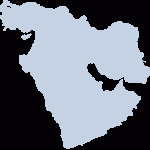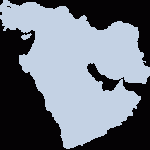Palestine Video & Analysis: Saeb Erekat's Speech at Birmingham (Yenidunya/Baghdady)
 Tuesday, March 30, 2010 at 7:48
Tuesday, March 30, 2010 at 7:48 On 23 March, the chief negotiator for the Palestinian Authority, Dr. Saeb Erakat spoke about the current political stalemate at the University of Birmingham. This prompted a lively and open debate, with Erakat encouraging those who attended to challenge him. The topics covered were broad, including: the Palestinian Israeli conflict, including the most recent exchange of maps between the former Prime Minister Ehud Olmert and the Palestinian Authority leader Mahmoud Abbas; the relationship and influence of external powers on the region; and the problem with Hamas.
Middle East Inside Line: Is Washington Scaring the Israeli Government?
US-Israel: The Big Fight Within Obama Administration — Ross v. Mitchell, NSC v. State Department
Video sections are interspersed amongst the analysis:
[youtube]http://www.youtube.com/watch?v=Y-g3qzellKw[/youtube]
Peace talks with Israel
Stating that the recent proximity talks should be based on a generally agreed framework consisting of core issues, in particular borders, Erakat suggested a two-state solution based on the 1967 borders with agreed swaps of territory.
[youtube]http://www.youtube.com/watch?v=PddtMfvZXWY[/youtube]
Erakat outlined the counter proposal, in response to the December 2008 offer of the Olmert Government in Israel, on the border swaps (part 3 of the video). Although the satellite images show that 1.2% of the West Bank is occupied by Israeli settlements, the Olmert government provided a map in December 2008 annexing 6.5% of settlement land (in return of giving 5.8%). The Palestinian Authority leader Mahmoud Abbas provided a counter-map approving an annexation of 1.9% of the total land. Erekat noted that no agreement was achieved, and the problem is yet to be solved.
The questions remains: what is the purpose of Israeli settlements and their expansion in the Palestinian territories since 1967? The term "security" is constantly reproduced by Israeli advocates. The Palestinian Authority also invokes "security", but it does so to consolidate legitimacy not just within the eyes of Palestinians but also in the international arena, since interaction with a stateless, non-territorial Palestinian group is more problematic compared to that with Israel. In the absence of a level playing field between Israel and the Palestinian territories and of Israel accepting conditions for the end of settlement construction, there is little hope for both parties to understand each other’s needs.
[youtube]http://www.youtube.com/watch?v=UHrMO8PJzWo[/youtube]
Erakat pointed out the cost of war must be greater than that of peace to achieve a peace settlement. Was this a subtle hint that Israel is hoping to benefit further from a lack of peace? Following US Vice President Joe Biden’s visit to Israel, 1600 new housing units were approved by the Jerusalem municipality. Then, on 24 March, hours before the Obama-Netanyahu meeting in the White House, the Jerusalem municipality announced final approval for construction of 20 apartments in a controversial hotel in east Jerusalem.
That is where we come to the point of crisis. Despite Washington’s pressure on Israel to announce a moratorium in East Jerusalem if not a permanent freeze, the Israeli authorities are still ignoring calls to stop settlement expansion. Last week Israeli Prime Minister Benjamin Netanyahu told his ministers in the weekly Cabinet meeting: “As far as we are concerned, building in Jerusalem is like building in Tel Aviv.”
[youtube]http://www.youtube.com/watch?v=eLjW27mh2WI[/youtube]
This crisis came out in Erekat’s words: “If Israel does not want a two-state solution, if they want to call my home town Jericho in its Hebrew name Yeriho, if they want to call Nablus in its Hebrew Shechem, if they want to call al Quds, Yerushalayim... [it] is destroying the two-state solution.” (part 2 of video)
External influence
To achieve peace in a region of conflict, a mediator may be useful, but if the mediator is not effective or the peace process reaches a stalemate, then external influences and distant events can adversely affect the situation. Erekat commented, "When bombs are falling in Iraq and Afghanistan, bombs are falling in my home in Jerusalem....When bombs fall in Kandahar, it also falls in my home in Jerusalem."
[youtube]http://www.youtube.com/watch?v=F4Lhmxf6qnU[/youtube]
For the mediator to conduct their role effectively, they must be on good terms with the parties in conflict. The US has been that mediator with the 1993 Oslo process, but their position --- after a second intifada, the attack on Afghanistan, the invasion of Iraq, and now a potential third intifada --- is now strained.
[youtube]http://www.youtube.com/watch?v=cABGRWvjhEg[/youtube]
Erekat noted the issue of "security" for the US, "This is a wake up call....The US take bodies wrapped in the national flag back to the US daily... They do not need anyone to seek security for them." This "wake-up call" has arguably brought a renewed push for peace, with talks much more regular under the Obama Presidency than under the previous Bush administration.
However, Erakat pointed out that the Palestinian government had chosen the EU for nation- building, security talks, and mediation, and it wasn’t because they "love them". According to Erekat, the EU have credibility and can provide sufficient financial support to the Palestinian territories. In addition, the EU has relatively stable relations with the US as it faces its "wake-up call".
[youtube]http://www.youtube.com/watch?v=UTxKOFK5Bec[/youtube]
When one looks at the options available to the Palestinians, they have little choice Egypt and Jordan have arguably been effective as mediators; however, their financial contribution to nation-building as well as their credibility is on a par with the EU.
The United Nations, another option given their role in the Quartet (US-EU-UN-Russia) are not that close to Israel and the Palestinian territories. Moreover, it has failed on previous occasions to enforce the notion of the collective upon the action of a state, as in the ability to prevent the US-UK invasion of Iraq.
[youtube]http://www.youtube.com/watch?v=p-iDUBxpTUA[/youtube]
Russia would be an interesting but highly unlikely choice as mediator. Russia has military links with Iran and thus with Syria and Hezbollah. That is a suspect list of alliances for the US, which would prefer the Palestinian government to choose the EU over Russian involvement.
For Erekat, democracy is the second pillar, after “just” solution to the Palestinian-Israeli conflict, of the fight against “extremism”. He stated, "Anyone who says Arab world is not ready for democracy is a racist.”
That assertion faces the reality of governmental structures such as monarchies in Saudi Arabia and Oman, constitutional monarchies in Bahrain and Jordan; constitutional emirates in Kuwait and Qatar, a federation of emirates in United Arab Emirates, an authoritarian regime in Syria, and a “half-democracy” in Iraq.
Erekat says that “democracy is democracy”, regardless of how it arrives, but that cannot guarantee social change and a political agenda for his outcome. Indeed, beyond the Arab world, does the US want this? Which country has been the closest ally of Washington? Israel or Saudi Arabia?
[youtube]http://www.youtube.com/watch?v=r2exUU_IB3U[/youtube]
The Problem of Hamas
Dr. Erekat harshly criticized Hamas’s policy following its victory in the last Gazan elections. He described Hamas’s existence in the Gaza Strip as a coup d’etat and emphasized that “democracy in Palestine did not fail but Hamas failed”. Referring to the Quartet’s demands (recognition of the State of Israel, renouncing “terrorism”, and acceptance of previous agreements and obligations including the "Road Map"), Erekat blamed Hamas for not acting as a responsible government.
[youtube]http://www.youtube.com/watch?v=8NnouyQA3ys[/youtube]
Yet, what is to be done? Erekat says that nations must go and tell Hamas to sign the reconciliation document. But how? In an aggressive manner? Erekat himself said that the peace talks had collapsed due to Israel’s Operation Cast Lead against Gaza in December 2008.
So, can Erekat mean that the only solution to peace is through dialogue in the region? Perhaps, given Erekat's reference to Tehran. Unlike his President, Mahmoud Abbas, who had blamed Iran for blocking reconciliation between his Fatah organization and Hamas, Erekat said that Iran should not be seen as a threat.
[youtube]http://www.youtube.com/watch?v=8aF86-iuAKQ[/youtube]
How is this possible? Israel’s Deputy Ambassador to the UK, Talya Lador-Fresher, in her own speech at Birmingham in March, said Israel’s official policy is not to help the Gazans develop themselves economically. West Jersualem's position is explicit: unless there is a reconciliation agreement between Hamas and Fatah, Israel will never intervene and talk to Hamas.
At a time when both Israel and Egypt show their teeth to Hamas, who is supposed to put pressure on the Israelis to show flexibility? The EU or the US? Given Israel’s “(in)security needs”, and its claim that it has suffered since the unilateral withdrawal from the Gaza Strip, urging West Jerusalem to sit at a table with Hamas is more difficult than having Israel and the Palestinian Authority at the same table.
There is just one solution: instead of indirect pressure from Washington, the Obama Administration should start the same strategy they have pursued with Damascus to get a reconciliation agreement between Fatah and Hamas as soon as possible. This would not only help institutions produce an antidote to “insecurity requirements” but also bring an increase in the pressure on the State of Israel to reconsider the extent of its “concessions” on core issues.
 Bahrain,
Bahrain,  Benjamin Netanyahu,
Benjamin Netanyahu,  Bill Clinton,
Bill Clinton,  East Jerusalem,
East Jerusalem,  Egypt,
Egypt,  Ehud Olmert,
Ehud Olmert,  European Union,
European Union,  Fatah,
Fatah,  Gaza Strip,
Gaza Strip,  Hamas,
Hamas,  Hezbollah,
Hezbollah,  Iran,
Iran,  Iraq,
Iraq,  Israel,
Israel,  Joe Biden,
Joe Biden,  Jordan,
Jordan,  Kuwait,
Kuwait,  Mahmoud Abbas,
Mahmoud Abbas,  Oman,
Oman,  Operation Cast Lead,
Operation Cast Lead,  Oslo Accords,
Oslo Accords,  Palestinian Authority,
Palestinian Authority,  Palestinian Liberation Organization,
Palestinian Liberation Organization,  Qatar,
Qatar,  Quartet,
Quartet,  Russia,
Russia,  Saeb Erekat,
Saeb Erekat,  Saudi Arabia,
Saudi Arabia,  Syria,
Syria,  Talya Lador-Fresher,
Talya Lador-Fresher,  Tony Blair,
Tony Blair,  Turkey,
Turkey,  United Arab Emirates,
United Arab Emirates,  United Kingdom,
United Kingdom,  United States of America,
United States of America,  University of Birmingham,
University of Birmingham,  West Bank,
West Bank,  Yasser Arafat,
Yasser Arafat,  Yitzhak Rabin in
Yitzhak Rabin in  Middle East & Iran
Middle East & Iran 



